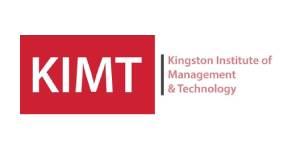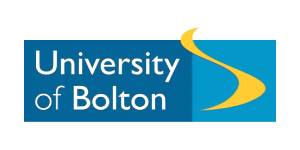BEng (Hons) Software Engineering


Request a follow-up
98.2%
Completion Rate
90.1%
Course Pass Rate
95%
Submission Rate
88%
Student Satisfaction
Tuition
Check with the authority
Number of Installments
Check with the authority
Duration
Overall programmes could be completed in 33 months for Part-time and 27 months for Full-time.
Pedagogy
Online
What makes our business school different?
Proudly rooted in Cardiff, UK, our officially registered business school extends its reach with accredited UK distance learning, bringing world-class education to the dynamic landscape of the thriving UAE. As a flourishing business school, we distinguish ourselves with a unique mix of online and on-campus programs. Experience world-class education at the intersection of Cardiff excellence and Middle East dynamism.
UK Accredited Programs
Low Fees
100% Assignment Based
Easy Payment Structure
Graduate In UK
Dual Qualifications
The University of Bolton UK is a public university that dates back to 1825, when it was founded as the Bolton Mechanics’ Institute. It offers courses in various fields of study, such as business, health, engineering, art, and education. It has campuses in High Wycombe, Aylesbury, Uxbridge and Great Missenden, and an academic centre in Ras al-Khaimah in the United Arab Emirates. The university is known for its high levels of student satisfaction, employability, and support, and has been awarded the University of the Year for Student Support by the Daily Mail in 2024.
The University of Bolton UK is a modern and dynamic university that aims to provide its students with a high-quality and personalised learning experience, and to prepare them for successful and fulfilling careers in the global market.
According to different sources, the rankings of the University of Bolton UK are as follows:
- The Complete University Guide 2024: 110th out of 115 in the UK, 8th for student satisfaction, 125th for graduate prospects.
- The Times Higher Education World University Rankings 2024: not ranked in the top 1,600 universities in the world.
- The Guardian University Guide 2024: 29th out of 81 in the UK, 10th for student satisfaction, 100th for graduate prospects.
- EduRank 2023: 115th in the UK, 2093rd in the world, in the top 50% across 58 research topics.
- LeapScholar 2024: in the UK’s overall top ten for student satisfaction since 2020, the highest place 'post ‘92’ university in the whole of the UK.
The Software Engineering programme at the University of Bolton has been designed collaboratively working with industrial partners to ensure that students study a comprehensive program of relevant industrial topics. Many of the graduates find successful careers in this lucrative area of employment.
Coursework throughout the course utilises realistic scenarios intended to prepare students for their career after university. This applies both to the technical areas studied, but also the output required from the student such as technical proposals or reports to management
Much of the coursework undertaken by students is project based and often involves group working. The ability to work successfully and productively in teams is an essential element of modern software engineering.
Internationalisation: Software Engineering and application development is by virtue an international business and therefore isn’t bound by geographical area. The course covers such issues as culture, socialisation, localisation and international computer and communications standards.
Whilst the entire Degree programme will take 33 months for Part-time and 27 months for Full-time, students are required to successfully complete 12 modules during the first 2 years. On completion of this segment, students will be awarded OTHM/Qualifi Level 5 Extended Diploma in Information Technology and thereafter progress to the Final Year for the award of the Bachelor’s Degree (BEng – Honours) from University of Bolton.
- Cyber Security (20 credits)
- Principles of Computer Programming (20 credits)
- Systems Analysis and Design (20 credits)
- Web and Mobile Applications (20 credits)
- Computer and Network Technology (20 credits)
- Managing Digital Information (20 credits)
- Software Engineering (20 credits)
- Database Systems (20 credits)
- Advanced systems Analysis and Design (20 credits)
- Management Information Systems (20 credits)
- Network Information Systems (20 credits)
- IT Project Management (20 credits)
- Undergraduate Project (60 credits)
- Agile Programming (30 credits)
- Enterprise Systems Development (30 credits)
You must have both of the following;
- 104 UCAS points. We accept a full range of qualifications that carry UCAS points, including A-levels, BTECs and T levels.
- Any subjects are acceptable at Level 3. Relevant science, technology, engineering or mathematics (STEM) and computing-related subjects are preferred.
- You should also have five GCSEs at grade C or above or grade 4 to 9 (or equivalent), including English and Mathematics.
- We'll be happy to consider your application if you don't meet the standard entry requirements but have non-traditional qualifications and/or relevant experience. You'll be required to undertake an assessment to determine your suitability for the course. You'll be assessed on your problem-solving skills and your ability to participate in group work.
- You may be required to attend an interview and/or provide a portfolio of work.
- If English isn’t your first language, you’ll also need IELTS 6.0 with no less than 5.5 in any band (or equivalent).
For applicable tuitions, please, contact with the KIMT admission authority. Tuitions are due in full with enrolment for the complete programme.
- Module assignments
- Case study, Dissertation
Software engineers may work at any stage of the software development life cycle. Duties can include producing project requirements, writing algorithms, coding, testing, deployment, or maintenance.
As a BEng (Hons) Software Engineering graduate, you'll possess a wide range of technical and transferable skills such as advanced IT skills, analytical skills, communication, creativity and innovation, independence, logic, numeracy, project management and organisation. The demand for skilled and qualified software engineers is increasing. This is fostered by a transforming economic landscape driven by the need for computing technology solutions.
What can I do with this qualification?
Software engineering graduates who are new to the field often start out as programmers and work up to positions of greater responsibility, such as software architects or project managers.
Jobs directly related to a software engineering degree include games development, systems development, web design, web development, search engine optimisation, information systems management, and business analysis. A wide variety of career options are also available in sectors such as business, engineering, health care, gaming, publishing, IT, retail, education, medicine, aerospace and cyber security.
Alternative career options
Graduates can use the qualification as a stepping-stone into a range of other careers. Some of these roles may require relevant experience and/or postgraduate study. Some possibilities include:
- Advertising, marketing and PR
- Banking, finance and accountancy
- Energy and utilities
- Manufacturing and production
- Public sector and defence
- IT consultancy
- Radio and TV production
- Systems analysis
- Telecommunications
- Multimedia programming
- Digital copywriting
- Network engineering
- Passport copy (The pages hold personal information)
- All academic certificates & transcripts
- Work service letter (If any)
- Personal statement
- Updated CV
